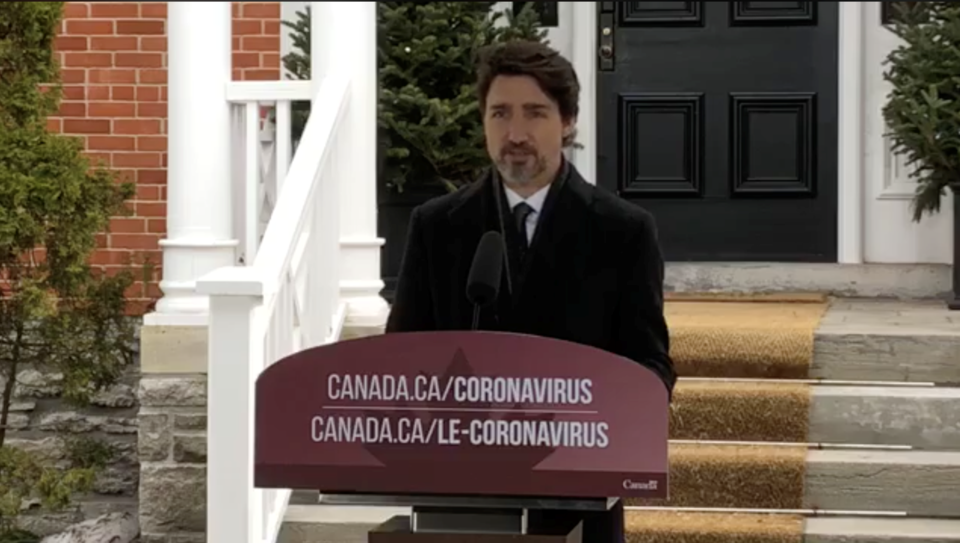Ottawa is not yet prepared to invoke the federal Emergencies Measures Act to deal with the COVID-19 pandemic.
Prime Minister Justin Trudeau said Friday (April 10) provinces still have the necessary tools under their own emergency measures to address the pandemic and he hopes the federal government will not need to step in.
Invoking the act, the successor to the War Measures Act, would give the federal government a considerably broader range of powers to tackle the pandemic such as further restricting travel and other freedoms.
The prime minister discussed the prospect of invoking the act during a teleconference Thursday with the nation’s premiers.
Trudeau said he does not believe the federal government needs to invoke the act at this point, but acknowledged Ottawa has been taking steps to deploy it if necessary.
The prime minister was also pressed on a timeframe for a return to normalcy for Canadians.
For the second day in a row, Trudeau said such a return won’t occur until a vaccine for COVID-19 is available, possibly in six to 18 months.
But he said that the country can expect some of the current measures to ease after the first wave of the pandemic subsides.
That first wave might pass by the summer if Canadians abide by measures such as social distancing and staying at home, according to Trudeau.
“At that point we will be able to talk about loosening up some of the rules that are in place, looking at particular sectors where people can go back to work, bringing in new rules around how people can interact with each other and society and get things rolling again,” Trudeau said.
“We will have to be vigilant and active every day for possible resurgences of the virus. At that point, however, we will have developed much better testing protocols … And we will all become much, much better at reacting when a possible resurgence happens.”
While the prime minister urged Canadians during his daily media briefing to stay home throughout the holiday weekend, the House of Commons is being recalled for a rare Saturday sitting.
Parliament will be looking to pass legislation that Trudeau described as “the largest economic measures Canada has seen since World War II.”
A small group of parliamentarians was recalled March 24-25 to pass a $107-billion COVID-19 relief package.
But the House of Commons and the Senate has yet to sit since then.
Included in the legislation is the government’s $71-billion wage-subsidy program, which will cover up to 75% on the first $58,700 an employee earns.
Trudeau, who has been conducting daily briefings for nearly four weeks straight, said he would next be speaking in the House of Commons Saturday to address Canadians.
After that, he would be taking Sunday and Monday off to be with his family.
Amid the unprecedented economic environment brought on by COVID-19, Trudeau acknowledged no decision has been made on whether to extend the mandate of Bank of Canada governor Stephen Poloz.
The Bank of Canada last month cut its key rate to 0.25% in a bid to inject more capital into the economy during the pandemic.



